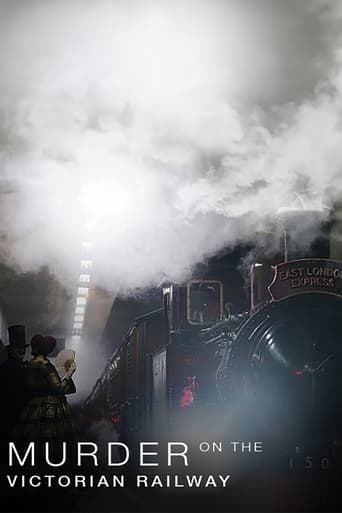

n my opinion it was a great movie with some interesting elements, even though having some plot holes and the ending probably was just too messy and crammed together, but still fun to watch and not your casual movie that is similar to all other ones.
... View Moreif their story seems completely bonkers, almost like a feverish work of fiction, you ain't heard nothing yet.
... View MoreThe film may be flawed, but its message is not.
... View MoreIt's a movie as timely as it is provocative and amazingly, for much of its running time, it is weirdly funny.
... View MoreI enjoyed the programme and feel that it could easily have been longer. There's no question that Kate Colquhoun had provided a rich source of background material in her book for the documentary makers to feast on. I found the conjuring up of the 1864 atmosphere especially impressive.However, as for creating the uncertainty as to whether or not Muller was guilty, I think they took too much artistic licence. Just because he was relaxed on the voyage home didn't make him innocent!For example, my great-great grandparents, Ferdinand and Elizabeth Repsch, were friends of Muller's, but were not mentioned in the documentary. Muller often worked with Ferdinand in his tailoring shop, and Elizabeth recognized the hat that had been left at the scene of the crime as Muller's. No doubt raising such evidence in the documentary would have made the case against Muller even more overwhelming, and cost it some of the drama they wanted to drum up.
... View MoreHaving other commitments last night, I have only just been able to watch a recording of BBC2's "Murder on the Victorian Railway". If I had known nothing about the case, I think I would have enjoyed it enormously. It was wonderfully atmospheric, beautifully scripted and well-acted entertainment but I wish that the programme could have been longer, and the production team provided with a larger budget. Why do I take that view? Essentially, because I would have liked to have seen the moment portrayed on film when my great-great-Grandfather, Detective-Sergeant George Clarke, arrested Franz Muller in New York harbour on board the sailing ship Victoria.Detective-Sergeant 'who' I hear you ask; surely it was Inspector Tanner who made the arrest? Not so, as the court transcripts (and Kate Colquhoun's book on which the programme was based) reveal. The arrest, and its description in court was undertaken by Tanner's sergeant who had travelled with him to New York. Tanner only arrived on the Victoria some hours later, accompanied by the witness John Death, to conduct an 'identification parade'.It is perhaps natural that my greatest interest in this case centres around the involvement of my ancestor, Detective-Sergeant George Clarke. Undoubtedly, it was Inspector Tanner who led the murder investigation. But as we all know from 'Ripper Street' and 'The Suspicions of Mr Whicher' all Detective-Inspectors are accompanied by a faithful Sergeant! What is certain, is that the Thomas Briggs' murder investigation was the high water mark in Tanner's detective career. In contrast, it proved to be the launching pad for Clarke's even though he was already some 12 years older than Tanner. By the time that Franz Muller was hanged for Briggs' murder, Clarke had already been put onto his next murder inquiry, the Plaistow Marshes murder. In 1867, during his investigations into the Fenian Conspiracy, Clarke was promoted to Inspector and then in May 1869, at the age of 51, to Chief Inspector. The outranked and younger Inspector Tanner retired a few weeks later in 1869 on grounds of 'bodily infirmity' and it does seem that poor health may have inhibited to some extent his progression within the Detective Department. Nonetheless, Tanner still had sufficient energy in 'retirement' to run a pub in Winchester and to act as Secretary for his Fleet Street-based Lodge of Freemasons until his premature death in 1873.Between 1869 and 1877, Detective Chief Inspector George Clarke was second-in-command of the Scotland Yard Detective Department, and tackled many of the major criminal investigations in that period, including several murders, serious thefts, arson, frauds and betting offences, the Tichborne Claimant case and the 'Balham Mystery' (the unresolved poisoning of Charles Bravo). Then, in October 1877 he found himself in the dock at the Old Bailey charged with corruption, alongside three of his Scotland Yard colleagues. Though he was acquitted, there is little doubt that the notoriety surrounding the 'Trial of the Detectives' has placed Clarke's career in the historical shadows, or even (as in last night's programme) completely off the cast-list.Nonetheless, despite my personal niggle, last night's production team produced an entertaining programme of high quality. I would like to see more of the same please, but an extended running time and a bigger budget for a larger cast, to ensure that the 'Sergeants' in this world (who may ultimately prove to be particularly interesting) also get a look-in. In the meantime you might like to read Kate Colquhoun's excellent book 'Mr Briggs' Hat' to flesh out last night's progamme and, of course, my recent biography of Detective Chief Inspector George Clarke, 'The Chieftain'.
... View More